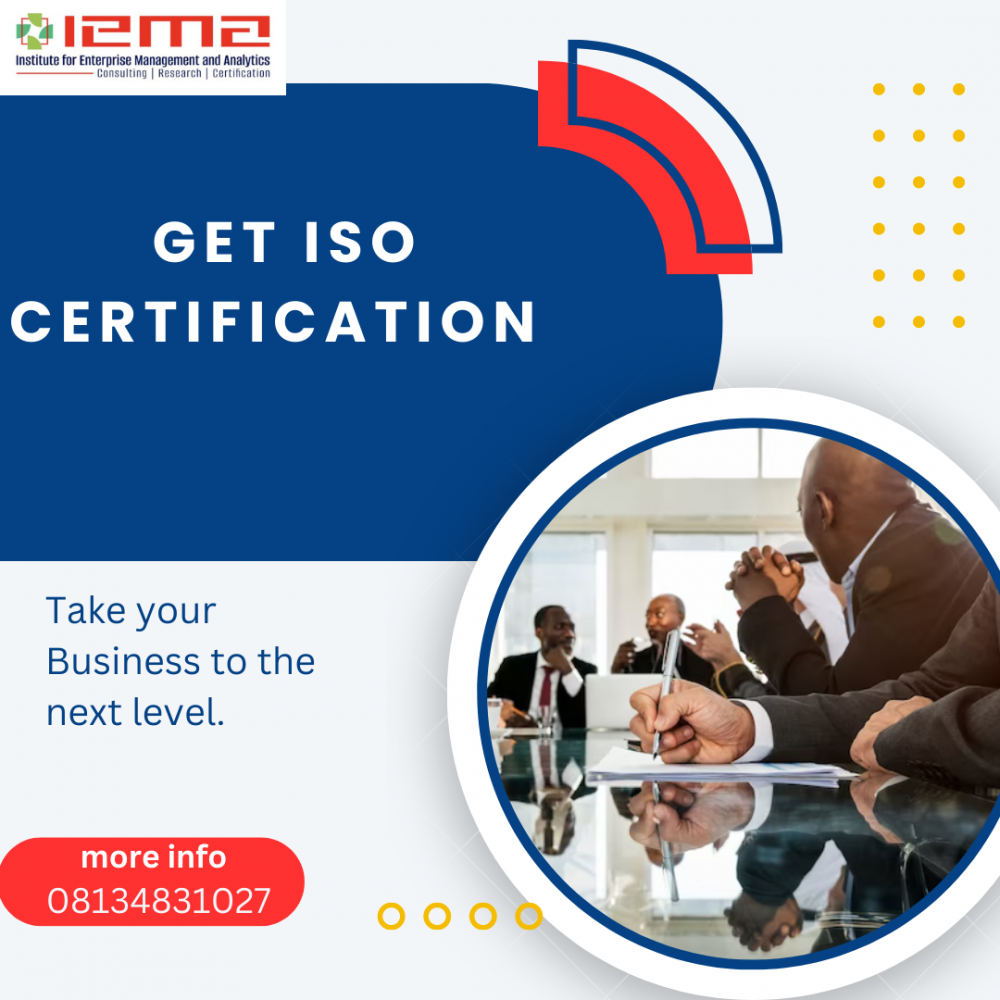Introduction:
In today’s increasingly competitive global marketplace, businesses are constantly seeking ways to differentiate themselves and gain a competitive edge. One effective strategy for achieving this is obtaining ISO certification. ISO certification not only demonstrates a commitment to quality, efficiency, and continuous improvement but also serves as a powerful marketing tool for businesses looking to expand their presence in global markets.
In this IEMA article, we explore how ISO certification provides a competitive advantage in global markets and why it has become a key differentiator for businesses worldwide.
- Establishing Credibility and Trust: ISO certification is widely recognized and respected as a symbol of quality, reliability, and consistency. By obtaining ISO certification, businesses signal to customers, partners, and stakeholders that they adhere to internationally recognized standards and best practices. This instills confidence and trust in the organization’s products, services, and processes, making it easier to attract and retain customers in competitive global markets. ISO certification serves as a third-party validation of an organization’s commitment to quality and provides assurance that products and services meet or exceed customer expectations.
- Meeting Customer Requirements: Many businesses, particularly those operating in highly regulated industries or serving multinational clients, require suppliers and partners to be ISO certified as a condition of doing business. ISO certification demonstrates that an organization has implemented robust quality management systems, environmental management systems, information security management systems, or other relevant standards, aligning with customer requirements and expectations. By achieving ISO certification, businesses can expand their market opportunities and access new customers and markets that prioritize quality and compliance.
- Enhancing Market Access and Global Expansion: ISO certification opens doors to international markets by facilitating market access and regulatory compliance in different countries and regions. Many countries require imported products to meet specific quality and safety standards, and ISO certification can streamline the process of entering foreign markets by demonstrating compliance with internationally recognized standards. Moreover, ISO certification enhances the competitiveness of businesses in global supply chains, as ISO-certified suppliers are often preferred by multinational corporations seeking reliable and high-quality partners.
- Improving Operational Efficiency and Performance: Obtaining ISO certification requires businesses to implement structured management systems and processes that improve efficiency, reduce waste, and enhance overall performance. ISO standards provide a framework for continuous improvement, enabling organizations to identify and address inefficiencies, errors, and non-conformities systematically. By adhering to ISO standards, businesses can streamline operations, minimize risks, and optimize resource utilization, leading to cost savings, productivity gains, and competitive advantages in global markets.
- Differentiating from Competitors: In crowded and competitive markets, ISO certification can serve as a powerful differentiator that sets businesses apart from competitors. ISO-certified organizations demonstrate a commitment to quality, customer satisfaction, and continuous improvement, distinguishing themselves as industry leaders and preferred partners. ISO certification provides a tangible proof of a business’s dedication to excellence, which can sway purchasing decisions and attract discerning customers who prioritize quality and reliability in their suppliers.
- Building Brand Reputation and Value: ISO certification enhances the reputation and value of a brand by associating it with globally recognized standards of excellence and quality. Businesses that achieve ISO certification can leverage the ISO logo and certification marks in their marketing materials, promotional campaigns, and communication channels to reinforce their commitment to quality and differentiate themselves from competitors. ISO certification enhances brand credibility, integrity, and trustworthiness, which are essential elements of building long-term customer loyalty and sustaining competitive advantage in global markets.
In conclusion, ISO certification offers businesses a competitive advantage in global markets by establishing credibility, meeting customer requirements, enhancing market access, improving operational efficiency, differentiating from competitors, and building brand reputation and value. ISO certification is not only a mark of quality and excellence but also a strategic investment that pays dividends in terms of increased market share, revenue growth, and sustainable business success.
By embracing ISO standards and achieving certification, businesses can position themselves for success in the global marketplace and thrive in an increasingly competitive business environment.





Leave a Reply